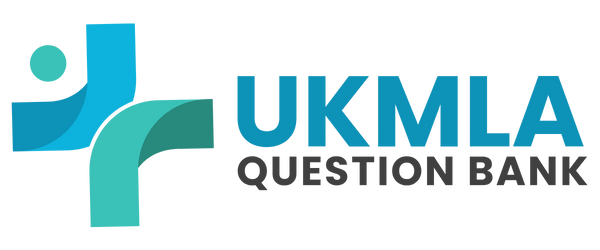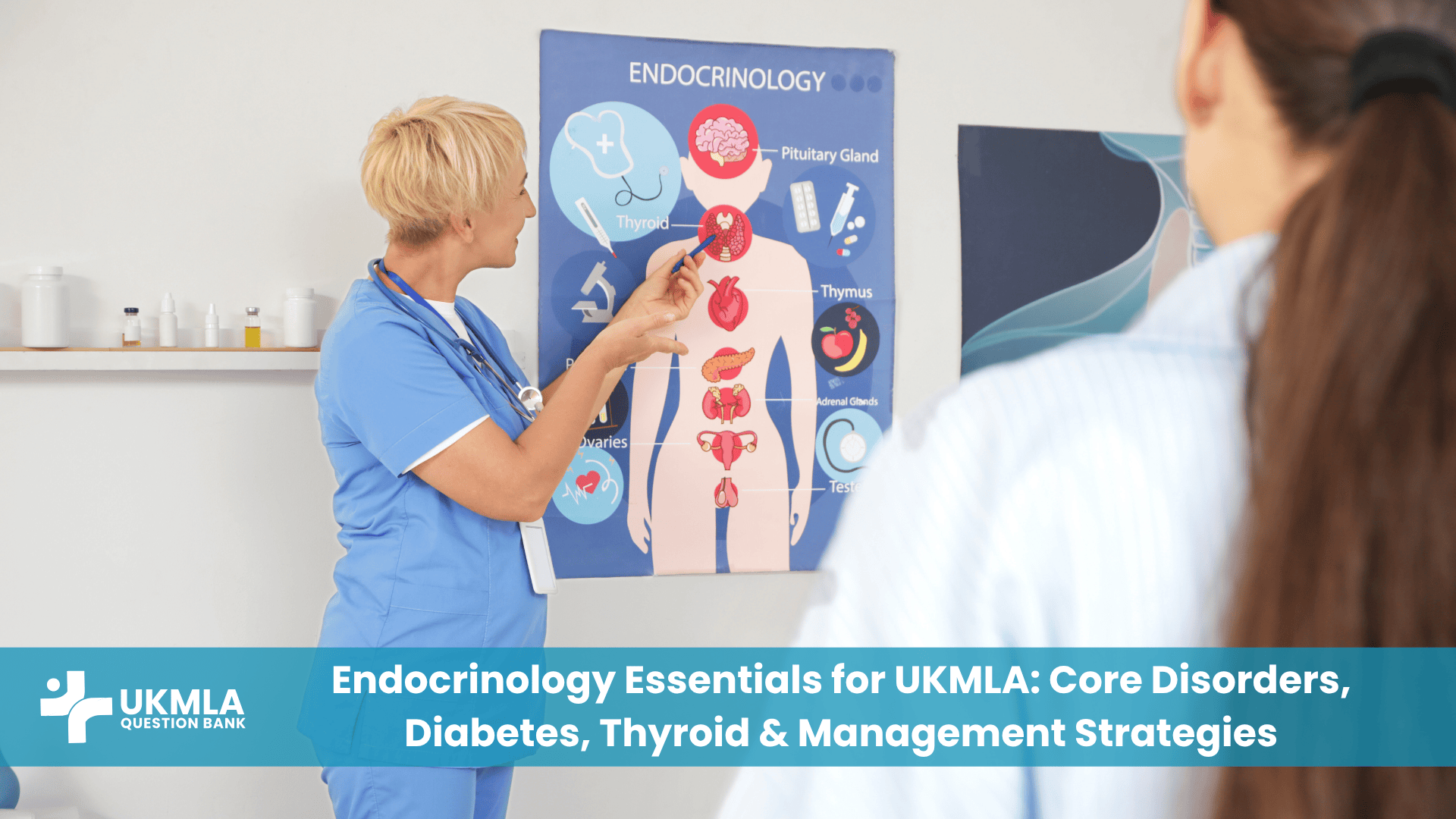The UK Medical Licensing Assessment (UKMLA) is a significant milestone, and success hinges on meticulous preparation. While the ideal study duration varies for everyone, a well-structured UKMLA study plan, even one condensed into an intensive 3-month period, can be highly effective if approached with dedication and smart strategies. This guide provides a comprehensive 3-month template designed to help you cover the essential ground for both the Applied Knowledge Test (AKT) and lay foundations for the Clinical and Professional Skills Assessment (CPSA).
This template is a framework. You’ll need to adapt it based on your personal strengths, weaknesses (identified using the “[GMC UKMLA Content Map: Your Blueprint for Success]”), whether you’re a UK student with an integrated curriculum or an International Medical Graduate (IMG) focusing solely on exam prep, and whether you’re targeting the AKT or a combined approach. Remember, the goal of any UKMLA study plan is not just to study hard, but to study smart.
Is a 3-Month UKMLA Study Plan Realistic?
Before diving into the template, let’s address this crucial question.
For focused AKT preparation (especially for IMGs who have recently covered similar material or can dedicate full-time study): Yes, a 3-month intensive plan can be feasible, provided you have a solid foundational knowledge.
For UK students integrating with final year studies: This template can supplement your university’s schedule, helping you focus revision in the final months.
For comprehensive AKT and foundational CPSA preparation from scratch: 3 months is very challenging and would require intense full-time dedication. IMGs often require longer, as discussed in our “[Timeline for UKMLA: From Registration to Receiving Your Results]”.
This template assumes:
You can dedicate a significant number of hours daily (e.g., 6-8 hours of focused study).
You have already addressed eligibility criteria (see “[Eligibility Criteria for UKMLA: A Comprehensive Checklist]”).
You have your primary study resources selected (e.g., a core textbook, a high-quality question bank like ukmlaquestionbank.com, and mock exam access).
Key Principle: This plan emphasizes a combination of knowledge acquisition, active recall, question practice, and regular review.
Pre-Planning Phase: Before Month 1 Begins (Crucial Week)
Action 1: Detailed Self-Assessment.
Thoroughly review the GMC UKMLA Content Map. Use the traffic light system (Green, Amber, Red) to identify your strengths and weaknesses across all domains: Areas of Clinical Practice, Areas of Professional Knowledge, and Clinical and Professional Capabilities. Our guide on “[How to Use the GMC UKMLA Content Map to Structure Your Revision]” is essential here.
Action 2: Gather Your Resources.
Ensure you have your core textbook(s), a subscription to a comprehensive UKMLA question bank, access to mock exams, and any other revision aids (flashcards, notes from previous studies).
Action 3: Set a Realistic Daily/Weekly Schedule.
How many hours can you genuinely commit each day? Block these out. Include time for breaks, meals, exercise, and sleep. Burnout is a real risk with intensive plans.
Action 4: Familiarize Yourself with the UKMLA Format.
Understand the structure of the AKT (SBA questions, computer-based) and the CPSA (OSCE stations). Review “[Decoding the UKMLA: Structure, Format, and Scoring Explained]”.
The 3-Month UKMLA Study Plan Template
This template divides the 12 weeks into phases, focusing on different aspects of preparation.
Phase 1: Foundational Knowledge & Weak Areas (Weeks 1-4)
Goal: Build/consolidate core knowledge, particularly in your “Red” and “Amber” areas identified from the Content Map.
Weekly Structure (Example):
Days 1-5 (Focused Study):
Morning (3-4 hours): Deep dive into 1-2 major clinical systems/topics from the Content Map (e.g., Cardiology, Respiratory, Ethics & Law). Focus on understanding pathophysiology, presentations, investigations, and management principles outlined in UK guidelines.
Afternoon (2-3 hours):
Targeted question bank practice on the topics covered in the morning (e.g., 50-100 SBAs).
Review explanations thoroughly, making notes on new concepts or errors.
Evening (1 hour): Quick review of the day’s topics or light reading on a “Clinical and Professional Capabilities” aspect (e.g., communication principles).
Day 6 (Review & Mixed Practice):
Review all topics covered during the week.
Do a mixed set of practice questions from all topics covered so far to aid retention and simulate exam conditions.
(Optional) Begin light CPSA skills reading/watching videos if time permits.
Day 7 (Rest & Light Planning): Active rest. Plan the upcoming week.
Key Activities:
Systematic coverage of Content Map topics.
Active learning: summarizing, creating flashcards, teaching concepts to an imaginary student.
Consistent question bank use, focusing on understanding rationales.
Phase 2: Comprehensive Review & Timed Practice (Weeks 5-8)
Goal: Cover remaining Content Map areas, reinforce learning through spaced repetition, and start incorporating timed practice.
Weekly Structure (Example):
Days 1-5 (Focused Study & Timed Practice):
Morning (3-4 hours): Continue covering new Content Map topics, now perhaps integrating “Amber” areas or revisiting “Red” areas for a second pass.
Afternoon (2-3 hours):
Complete larger blocks of timed practice questions (e.g., 100-150 SBAs in 2-3 hours) simulating AKT sections.
Thorough review of these timed blocks.
Evening (1 hour): Focused CPSA preparation: Read about common OSCE station types, watch videos of good consultations/examinations, practice communication frameworks.
Day 6 (Full-Length Mock Element & CPSA Practice):
Attempt a half-length or full-length AKT mock exam under strict timed conditions. (See “[UKMLA Mock Exams: Your Ultimate Key to Unlocking Top Scores…]”)
If focusing on CPSA, dedicate time to role-playing 2-3 stations with a study partner or practicing procedural skills.
Day 7 (Rest, Mock Review & Planning): Thoroughly review your mock exam performance, linking errors back to the Content Map. Plan.
Key Activities:
Spaced repetition of previously learned material.
Increasing volume and timed nature of question practice.
Dedicated time for foundational CPSA skills understanding and practice.
Phase 3: Intensive Mock Exams & Final Consolidation (Weeks 9-12)
Goal: Peak performance readiness through intensive mock exam practice, targeted review of remaining weaknesses, and solidifying exam technique.
Weekly Structure (Example):
Week 9 & 10:
2-3 Full-Length AKT Mock Exams per week: Take these under strict exam conditions.
Dedicated Review Days: Spend an entire day (or more) meticulously reviewing each mock exam. Analyze every question (correct and incorrect). Identify patterns in errors. Update your Content Map self-assessment.
Targeted Revision: Based on mock performance, revisit specific weak topics from the Content Map.
CPSA Practice: Continue regular CPSA station practice (2-3 sessions per week if applicable).
Week 11:
1-2 Final Full-Length AKT Mock Exams.
Focus on consolidating high-yield facts, UK guidelines, and common drug doses/side effects.
Review your notes on ethics, law, and professionalism.
Intensive CPSA circuit practice if CPSA is imminent.
Week 12 (Final Week):
Light Revision: Focus on quick reviews of your notes, flashcards, and common algorithms. Avoid learning new complex material.
Review the “[UKMLA Exam Day Checklist: What to Bring and What to Expect]”.
Prioritize rest, good nutrition, and stress management.
Light physical activity.
Key Activities:
Multiple full-length mock exams.
In-depth analysis of mock performance.
Final consolidation of knowledge and exam strategies.
Mental preparation and stress reduction.
Incorporating CPSA Preparation into the 3-Month Plan
If you are also preparing for the CPSA within this timeframe (highly ambitious but possible for foundational work):
Weeks 1-4: Dedicate 2-3 evenings per week to understanding OSCE principles, watching videos of good consultations (e.g., Geeky Medics, OSCEstop), and learning examination routines theoretically.
Weeks 5-8: Increase practical application.
Role-play 1-2 common station types (history, communication, explanation) with a partner 2-3 times a week.
Practice physical examinations on willing friends/family or manikins.
Review common practical procedures.
Weeks 9-12: Focus on timed mock stations and circuits if possible. Refine communication nuances, ethical responses, and time management within stations.
This UKMLA study plan is intensive. Success with a 3-month timeline requires unwavering discipline and focus.
Customizing Your 3-Month UKMLA Study Plan
IMGs vs. UK Students: IMGs may need to allocate more time to understanding UK guidelines, ethics, and the NHS context. UK students can leverage their existing curriculum knowledge.
Full-time vs. Part-time Study: This template assumes near full-time study. If studying part-time, you will need to extend the timeline significantly or be extremely selective about what you cover.
AKT-only vs. AKT & CPSA: If preparing for AKT only, you can dedicate more of the afternoon/evening slots to question practice and AKT-specific revision.
Learning Style: Adapt the activities. If you learn best by teaching, incorporate that. If mind maps work for you, use them.
Frequently Asked Questions (FAQ) on Creating a 3-Month UKMLA Study Plan
It’s very challenging. If an IMG has a strong existing medical knowledge base and can dedicate full-time, intensive study, it might be possible for the AKT. However, most IMGs benefit from a longer preparation period (6-12 months or more).
For an intensive 3-month plan to be effective, aim for 6-8 hours of focused study per day, 5-6 days a week. This includes active learning, question practice, and review.
Prioritize based on your initial self-assessment (red/amber areas first). Focus on high-yield topics. Use a system-based approach combined with dedicated time for professional knowledge and capabilities. Be efficient with your study techniques.
Aim for several thousand (e.g., 3000-5000+). The key is not just the number, but thoroughly reviewing explanations for both correct and incorrect answers.
In the final 3-4 weeks, aim for at least 3-5 full-length mock AKT exams, with dedicated time for in-depth review of each.
You would need to significantly adapt it, likely by extending the overall timeline or reducing the scope of daily/weekly targets. Be realistic about the hours you can commit.
Re-assess your plan. Identify why you’re falling behind. You might need to reduce the scope, increase study hours (if possible without burnout), or accept that you may need more time overall.
If primarily focusing on AKT, CPSA prep might be foundational (1-2 hours, 2-3 times a week) focusing on theory, watching videos, and light practice. Dedicated, intensive CPSA prep usually requires its own focused period after passing the AKT.
Signs include fatigue, loss of motivation, difficulty concentrating, irritability. Avoid it by scheduling regular breaks, ensuring enough sleep, maintaining a healthy diet, exercising, and having at least one full rest day per week.
A mix can be effective. You might dedicate a morning to one system deeply, then do mixed question practice in the afternoon to aid spaced repetition and simulate the exam’s varied nature. Experiment to see what works for you.
Conclusion: Discipline and Adaptability are Key
A 3-month UKMLA study plan is a demanding endeavor but can be a powerful tool if executed with discipline and adapted to your individual needs. This template provides a solid structure, but its success lies in your consistent effort, honest self-assessment, and willingness to adjust based on your progress.
Focus on understanding rather than rote memorization, practice extensively with high-quality questions and mock exams, and don’t forget to take care of your wellbeing. With a strategic and intensive approach, you can make significant strides in your UKMLA preparation in three months.




